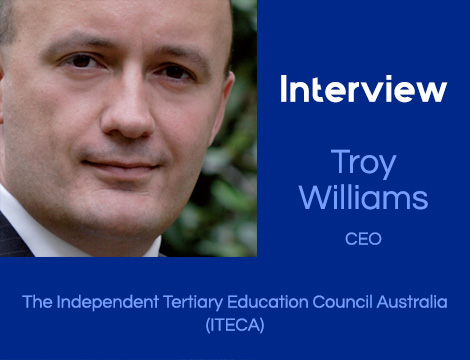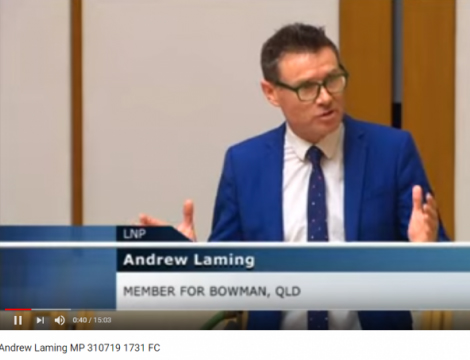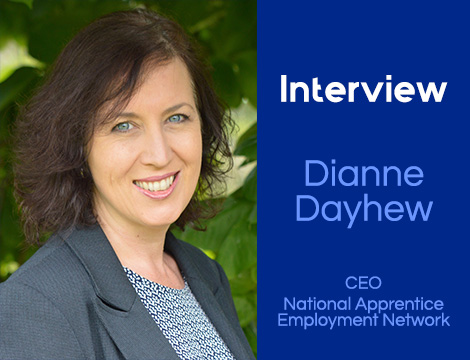Highlights:
The strategy identifies two target areas and five strategic initiatives
- Target area 1: Trainer and assessor capability, identified as a critical concern for the VET Sector in three consecutive years (2016-17, 2017-18 and 2018 -2020)
- Target area 2: VET in Schools
- Strategic Initiative 1: Recognising and supporting quality in the VET sector
- Strategic Initiative 2: Australia’s international education sector
- Strategic Initiative 3: Strengthening registration requirements
- Strategic Initiative 4: Training products of concern
- Strategic Initiative 5: Standards of concern
The Australian Skills Quality Authority (ASQA), as the national regulator of vocational education and training (VET) and certain English Language Intensive Courses for Overseas Students (ELICOS) programs has released its regulatory strategy 2019-2021. The strategy is designed to address several critical issues in the Australian education and training sector. The target areas and strategic initiatives outlined in the Regulatory Strategy continues the work identified in previous years to address key systemic challenges in the VET and CRICOS sectors, including trainer and assessor capability, protecting Australia’s quality international education and training, and strengthening registration requirements.
Target area – 1: Trainers and assessors’ capability
Trainers and assessors must demonstrate compliance with Clauses 1.13, 1.14, 1.15, 1.18, 1.23 and 1.24 of the Standards for Registered Training Organisations (RTOs) 2015. Read more about demonstrating compliance with these requirements from the links below:
Your Trainer and Assessor Files Clause 1.13 & 1.16 (Series)
https://www.caqa.com.au/single-post/2018/11/05/Your-trainer-and-assessor-files-Part-1-of-5
https://www.caqa.com.au/single-post/2019/04/10/Your-trainer-and-assessor-files-Part-2-of-5
https://www.caqa.com.au/single-post/2019/05/06/Your-trainer-and-assessor-files-Part-3-of-5
https://www.caqa.com.au/single-post/2019/05/28/Your-trainer-and-assessor-files-Part-4-of-5
https://www.caqa.com.au/single-post/2019/07/04/Your-trainer-and-assessor-files-Part-5-of-5
We will address the following requirements of clauses 1.14, 1.15, 1.18, 1.23 & 1.24 for providers to ensure that trainers and assessors delivering training and assessment, supervising those delivering training and assessment, or validating assessment practices, hold the appropriate credentials identified in Schedule 1 of the Standards for RTOs in our upcoming articles.
ASQA has acknowledged the concerns of stakeholders that the TAE40116 Certificate IV in Training and Assessment. It has been found that is does not produce quality trainers and assessors. The requirements of the qualification could be too onerous or a deterrent to potential trainers and assessors with relevant skills and industry experience. ASQA will, therefore, undertake a review in partnership with the Department of Employment, Skills, Small and Family Business.
Target area – 2: VET in Schools
This is a new target area in ASQA’s latest regulatory strategy. In recent years, the closure of several providers with large numbers of VET in schools’ enrolments has highlighted key risks in relation to VET delivered in schools, including:
- The provision of accurate information to support students in making an informed decision to enrol in a VET program.
- Ensuring teachers/trainers and assessors delivering the program are appropriately qualified.
- Alignment between training and assessment delivery and the requirements of the relevant training package.
- Availability of sufficient learning and assessment resources to support students.
- Timely certification of students on completion of their training.
- Adequacy of partnering arrangements.
ASQA is writing to the relevant education and training authorities in each state and territory to provide advice about the risks identified through recent regulatory activity concerning VET in schools. This communication will inform their oversight of arrangements within their jurisdiction.
ASQA will, in consultation with other regulators and all state and territory governments, undertake a scoping study to:
- Further clarify the key risks associated with VET delivered in secondary schools, and understand how these risks interact with the delivery models in each jurisdiction
- Research the delivery and quality assurance of VET for secondary school students in other countries
- Analyse the findings of existing research and reviews
- Provide further advice to all state and territory Ministers with responsibilities for education and training concerning the risks identified through recent audits of RTOs delivering VET in secondary schools
- Consider whether a regulatory response and/or further work is required, including a potential strategic review into VET delivered in secondary schools.
Strategic initiatives 2019–21
ASQA has identified the following five strategic initiatives:
- Recognising and supporting quality in the VET Sector
- Australia’s international education sector
- Strengthening registration requirements
- Training products of concern
- Standards of concern
Strategic Initiative 1: Recognising and supporting quality in the VET sector
ASQA’s Recognising and supporting quality in the VET sector initiative was announced as part of the Regulatory Strategy 2017–18.
ASQA is currently undertaking the following initiatives to recognise and support quality within its existing budget:
- revision of the Regulatory Risk Framework and Regulatory Principles
- continuation of ASQA’s education and information activities, implementing more positive messaging
- clarification of regulatory policies and processes relating to delegations and registration periods
- review of the publication of regulatory decisions on the ASQA website.
ASQA will work with the Department of Employment, Skills, Small and Family Business and the Minister for Employment, Skills, Small and Family Business to further develop ways to recognise and support quality in the VET sector. This work will be undertaken in light of the Australian Government’s response to the NVR Act review and more recent policy analysis work arising from the Joyce review.
Strategic Initiative 2: Australia’s international education sector
The following areas will be ASQA’s main focus:
- Student non-attendance
- Enrolment growth
- English-language capabilities
- Education agents
- Students transfers between providers
- Providers with multiple operations
- Provider Registration and International Student Management System (PRISMS) data issues
- Assessing the compliance of VET providers operating in key offshore markets, including in China
- 100% online delivery to international students especially offshore
- Assessment-only services in foreign countries
ASQA is currently expanding the existing information-sharing protocols with state and territory governments to include agencies with responsibility for international education and establish an agreement with Austrade to facilitate the exchange of information in relation to CRICOS providers, overseas student issues and the delivery of VET offshore.
Strategic Initiative 3: Strengthening registration requirements
ASQA will continue to use the following parameters to scrutiny for new applicants to become an RTO or CRICOS provider:
- shorter initial registration periods,
- greater scrutiny on applicant’s readiness to provide quality training and assessment
- financial Viability Risk Assessment
- greater scrutiny on the suitability of people associated with the applicant to ensure they meet the Fit and Proper Person (FPP) requirements
ASQA is planning to change the processes that apply when the ownership of an RTO or CRICOS provider changes. ASQA intends to introduce revised change of ownership processes for when the majority ownership of an RTO or CRICOS provider changes.
Strategic Initiative 4: Training products of concern
ASQA is actively monitoring providers with the following training products on their scope on the current strategic initiative:
- CHC33015 Certificate III in Individual Support
- CHC50113 Diploma of Early Childhood Education and Care
- TAE40116 Certificate IV in Training and Assessment
- CPCCWHS1001 Prepare to work safely in the construction industry
- BSB50215 Diploma of Business
Strategic Initiative 5: Standards of concern
ASQA has identified the clauses mostly training organisations are likely to be at risk of non-compliance.
The standards of concern are:
- 1.1; Have appropriate training and assessment strategies and practices, including amount of training
- 1.2; Appropriate amount of training is provided, taking account of the skills, knowledge and experience of the learner and mode of delivery
- 1.3; Have the resources to provide quality training and assessment – including sufficient training and assessors, learning resources, support services, equipment facilities.
- 1.8; Implement effective assessment systems
- 3.1; AQF Certification is issued only where the learner has been assessed as meeting the training product requirements
ASQA’s International Education Strategic Review identified the following standards of concern in the CRICOS sector:
- 2; implement a process for assessing English language proficiency
- 4; ensuring education agents act ethically, honestly and in the best interests of overseas students
- 8; supporting overseas students to complete their course within the required duration by appropriately monitoring student progress and participation
- 11; meeting the registration requirements for registration on CRICOS, including that the delivery of all courses is for a minimum of 20 course contact hours per week.
In 2019–21, ASQA will be enhancing its monitoring and use of PRISMS data to detect activity patterns and trends of interest. This approach makes it essential that providers are accurately recording relevant student information in PRISMS.
We are here to help!
We understand how difficult it is to be 100% compliant in all your RTO operations and systems. If you need any help, contact us today at info@caqa.com.au or 1800 266 160 and find out how we can support you.
You can read the complete regulatory strategy at:
https://www.asqa.gov.au/sites/default/files/asqa_regulatory_strategy_2019-21.pdf?v=1564961392
The following courses are currently being monitored (if you want to know how many RTOs have been cancelled or suspended that have these courses on their scope, please visit here).
You need to ensure that you are using quality training and assessment resources. If you are uncertain of the quality of your resources, you need to validate and even better ask an expert to do a few units for you. We are happy to help you with your validation of training and assessment resources and we can also deliver professional development sessions for your staff members.
We have the following quality training and assessment resources available for purchase. Our September special will be a 20% discount on the following qualifications:
- CHC33015 Certificate III in Individual Support
- CHC30113 – Certificate III in Early Childhood Education and Care
- CHC50113 Diploma of Early Childhood Education and Care
- CPCCWHS1001 Prepare to work safely in the construction industry
- BSB50215 Diploma of Business
Email us on info@caqa.com.au to receive your 20% discount.













